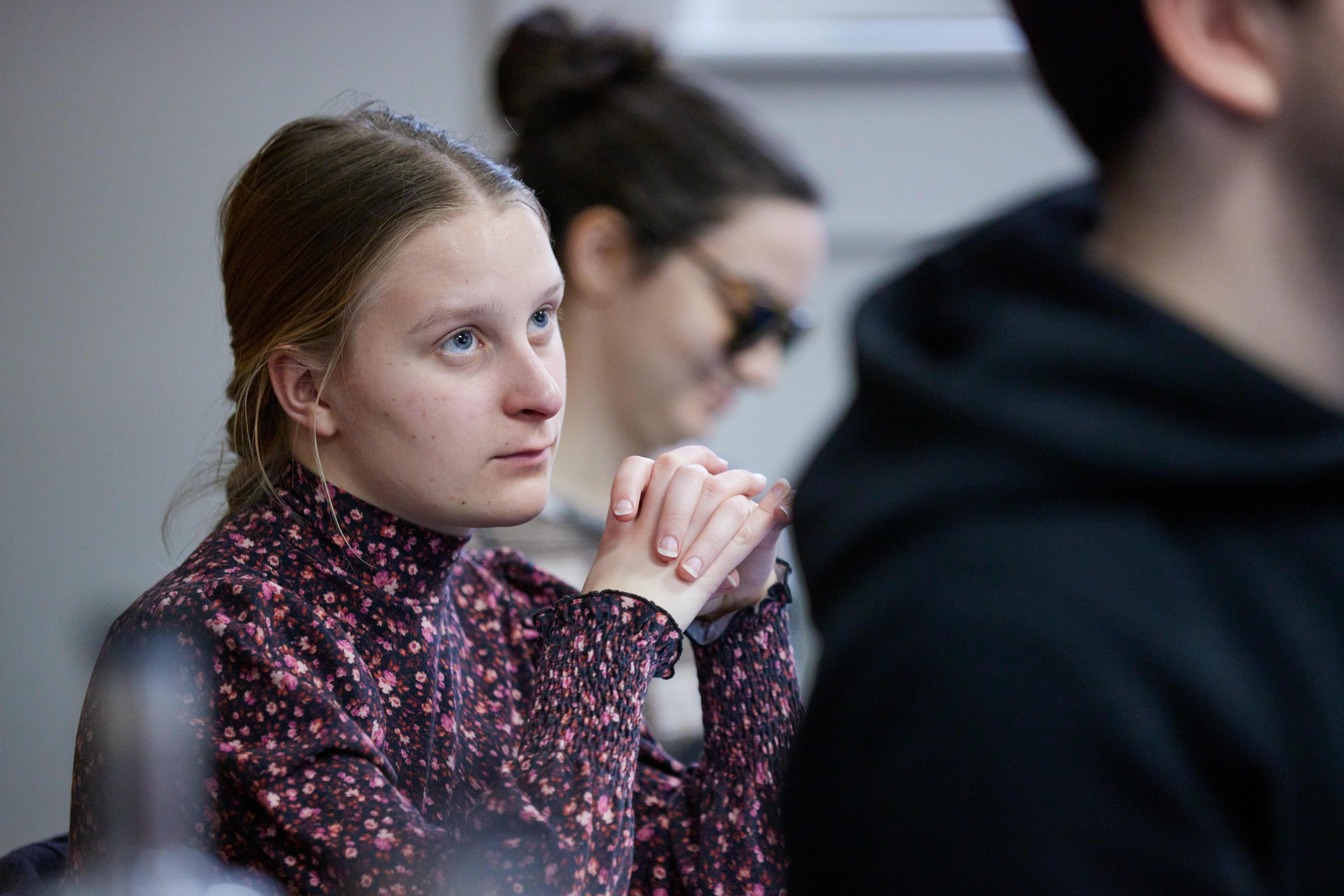Josephine Mason has dreamed of a career in architecture since she was at school with other disabled children.
“I’m autistic and disabled. I went to a school with lots of kids with disabilities, who needed all kinds of adaptations. I saw how we, as people, had to make accommodations suit the person and not the building built to help the person. That’s what got me interested,” she says.
Intrigued by the environment around her at school, Josephine began to show a keen interest in inclusive design and decided she wanted to help improve access to the built environment.
Finding the right path
Now 19-years-old, Josephine is heading off to university in London to study an Architecture Engineering degree. However, before that, she is boosting her knowledge and skills by attending CAE’s Pathways Academy.
The nine-month programme was created to give young disabled people the confidence, skills and support they need to kick start their career in inclusive design and access. It features 11 modules including inclusive design, access auditing skills, housing standards and building regulations.
“One of my teaching assistants at school found the course through a Google search when looking for courses around architecture, inclusion and accessibility. I thought it sounded perfect to build some specialist knowledge around inclusion in the built environment,” she explains.
Access work experience
On leaving school, Josephine took part in work experience with a London borough, looking at accommodation for autistic people. She visited schools to assess how inclusive and accessible they were for people with sensory differences.
“It was the first time I’d seen how buildings could be inclusive for people who are neurodiverse,” she says.
So, when she signed up for Pathways, Josephine knew she’d have more relevant knowledge than the average person, because of her interest and experience.
“But I knew nothing like I know now,” she says. “I knew typical information around wheelchair accessibility and adaptions, but I’d never really thought about the adaptations for people with partial sight or visual impairments.
“I didn’t realise how many modifications that really benefit people with hearing loss also overlap with what benefits other people with their disabilities. Pathways has taught me to see beyond my own disability.”
Highlights of the programme
Josephine had never thought about how disabled people would interact with spaces on an ongoing basis.
“It’s the areas where a person spends a lot of time that is most important to get right” she says.
“I was shocked to find out that one person’s needs can put barriers up for another person. If I want to be an architect one day, who will design truly inclusive buildings, Pathways has shown me how complex it is going to be to meet everyone’s needs.”
And she found the programme’s hybrid format of live online lessons taught via Microsoft Teams, and in-person teaching days, supportive.
“On a day where I had high symptoms, it was great to be able to just log online and be in the comfort of my own home. I could easily take a break and could switch the camera off when needed if I was worried about my resting ‘bored’ face,” she says.
“Being able to study in that way made it easier to concentrate on the lesson and not think about if my face is looking interested enough. Putting on a ‘mask’ can take up a lot of my energy.”
She found the in-person day valuable too, as students take what they’ve learnt into the real world, working with trainers and consultants with lived experience.
“As a group we looked at the accessibility of pavements. While I was able to step over an uneven paving stone, witnessing someone with a mobility aid get stuck reminded me to look beyond myself,” she adds.
Future plans
Josephine hopes her degree combined with her new skills and knowledge gained from the Pathways Academy will stand her in good stead when looking for her first role.
“I’m looking at small design firms that are passionate about inclusion and access, and firms that specialise in designing spaces for people with disabilities,” she says.
“But right now, the only thing I’m apprehensive about is that I’ll lose all of my Pathways knowledge before university starts, – but hopefully not as I’m so excited to have all this new knowledge!”

